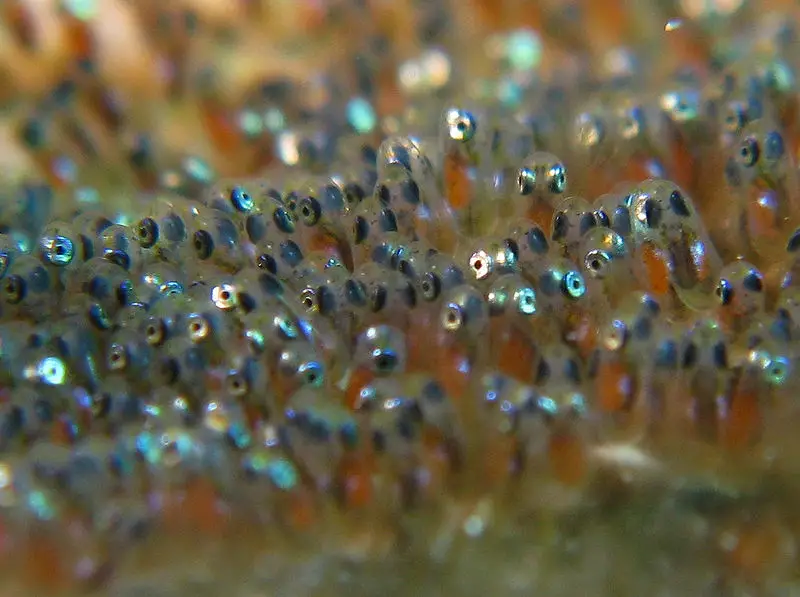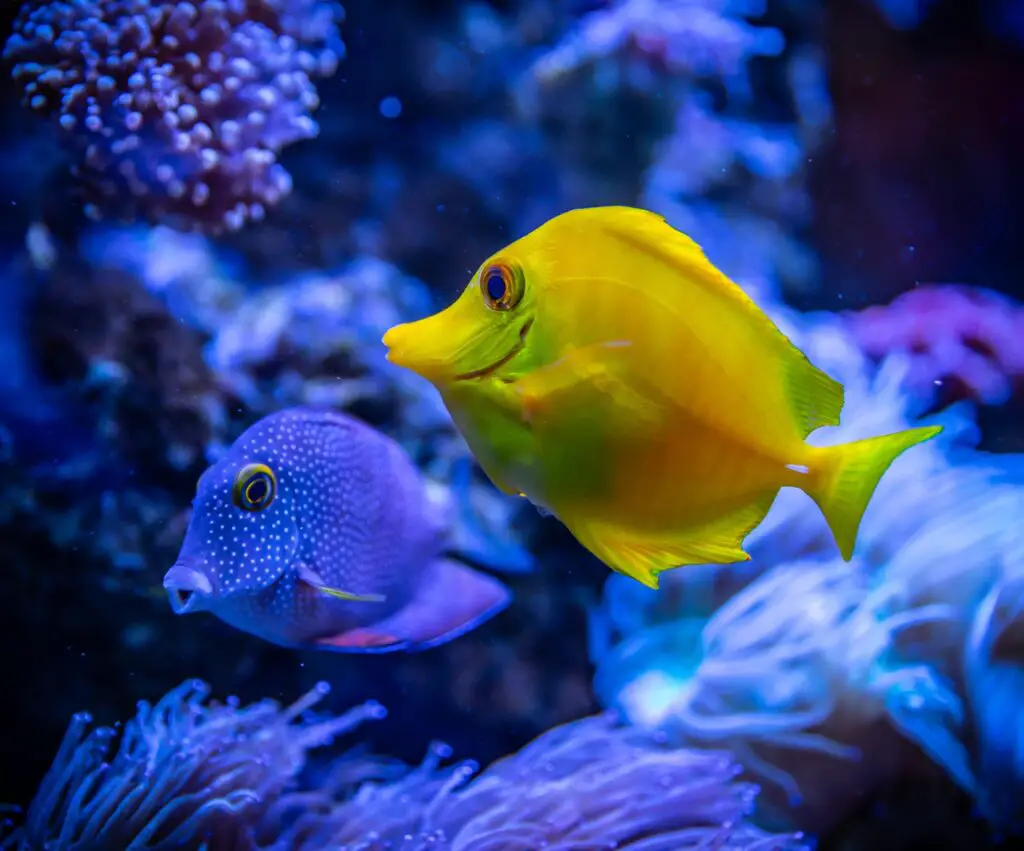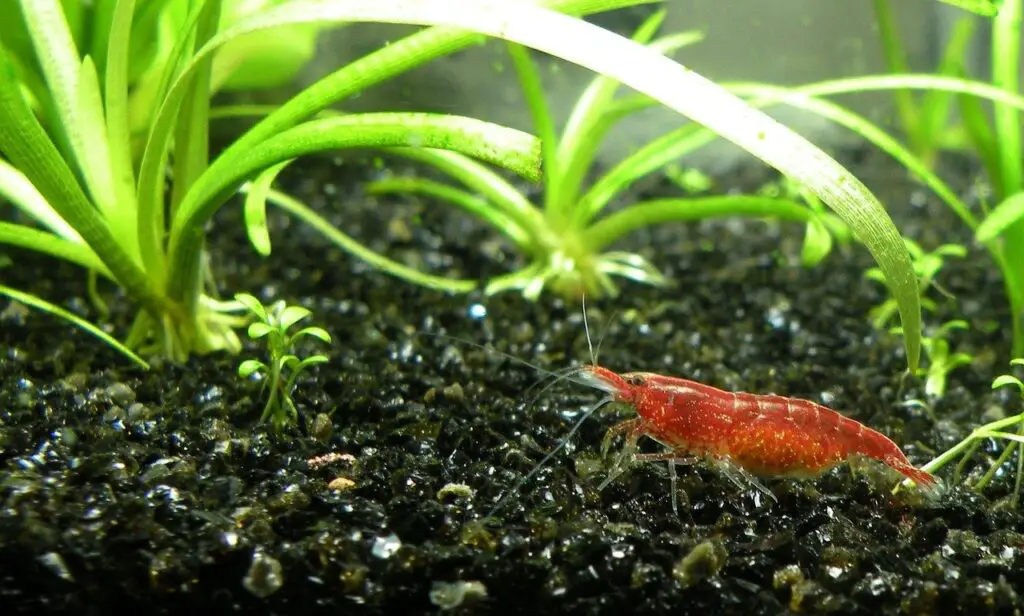Noticed that your fish have laid some eggs? Well, if they have been fertilized, then it probably won’t be too long before you have some baby fish swimming around your tank. Since these fish are going to take a little bit of preparation to look after, you are going to need to start planning for them. So, how long does it take for fish eggs to hatch?
It will always be dependent on the species of fish that you have, as well as the conditions of the water. In almost all cases, the eggs will hatch somewhere between the 2 and 10-day mark. There is rarely a fish out there that lays eggs that hatch beyond that 10-day mark, so that very much is your upper limit. If the eggs don’t hatch after that, then chances are that they weren’t fertilized.
How To Tell If Fish Eggs Are Fertilized
If the fish eggs have turned white, then chances are they are not fertilized.
If the eggs have been fertilized, then they will turn a very light shade of brown. You should then be able to see the fish develop inside of them. It will only take a day or so before you see a tiny pair of eyes staring back at you.
How Long Does It Take For Fish Eggs To Hatch In a Pond?
This is going to be dependent on the species of fish and the water conditions. For most pond-dwelling fish, it probably won’t take more than a week or so for those eggs to start to hatch.
If you put a bit of effort into maintaining your pond e.g. you like to keep the water at the right temperature, then you may find that the eggs can hatch in a shade under 5 days. Although, once again, this is always going to be dependent on the species of fish.
How Long Does a Fish Carry Eggs?
Again, this is something that is going to be completely dependent on the species of fish.
Most fish will have a gestation period of between 4 and 6 weeks. This means that the fish will be carrying the eggs around for that length of time before they are laid. Remember, the fish are still going to be carrying these eggs, even if they do not end up being fertilized!
How Often Do Fish Lay Eggs?
Once again, this is going to be dependent on the fish, as well as the water conditions.
If the fish were swimming around in the wild, then you may expect them to lay eggs 2-3 times per year. However, if you have your fish swimming around in a tank, then it could be a lot more frequent than this.
Obviously, when fish are swimming around in the wild, their habits are going to be determined by the water conditions, temperatures, etc. They are going to be laying their eggs at the time of the year when food tends to be in abundance, and the waters are a whole lot warmer. This will give the greatest chance of survival to their offspring.
Of course, in an aquarium, they don’t need to worry about this. A good fishkeeper could control the conditions of the water to ensure that it replicates the environment that fish would be spawning in where they swim about in the wild. This means that you could, feasibly, have your fish spawning all year. Once they have pumped out one set of eggs, they can get to work on the next set of eggs. This means that you could have them laying their eggs up to 10-12 times per year. Although, you may want it to be less frequent than this. We can’t imagine that it is that beneficial for fish to be spawning that frequently.
Will Fish Eggs Hatch In a Tank?
Fish eggs will hatch in a tank. However, we do encourage you to try to avoid that wherever possible.
If you have baby fish, you want to ensure that they have a good chance of survival. Any fishkeeper worth their salt will be moving the fish eggs on over to an incubation tank of some description. This way, the fish can grow up in a very strict and controlled environment. It also means that these tiny creatures are not going to end up as a snack for a particularly hungry fish.
There is plenty of advice on ensuring that your fish thrive in an incubation tank, so we recommend that you read through that information. Even if you are not an experienced fishkeeper, it shouldn’t be too tricky. All you are doing is essentially running a second, smaller, aquarium.
How Many Eggs Does a Fish Lay In One Day?
Fish do not lay eggs each day. They let a whole load of eggs at once, and there could be many weeks between each time they lay these eggs. In fact, depending on the water conditions, it could be months between each egg-laying session.
When the fish do lay their eggs, you will likely see hundreds of them being dropped at the same time. However, don’t worry. You are probably not going to be overwhelmed by a ton of fish. Only a small fraction of them are going to be fertilized. A smaller fraction will hatch, and an even smaller fraction will probably survive their early days (there is a reason why fish lay 100s of eggs! They do not always have a huge amount of success).
Conclusion
In almost all cases, it will take under a week for fish eggs to hatch. While it will be dependent on the species of fish that you own, the better the tank conditions (the right pH balance, water temperature, etc.) the better your chances are of getting those fish hatching quickly. This means that you may need to act quickly to move them over to an incubator. If the eggs don’t hatch in 10 days, they probably won’t ever hatch.
Meta Description
Have your fish laid some eggs? Want to try your hand at some fish breeding? Find out how long fish eggs take to hatch.



